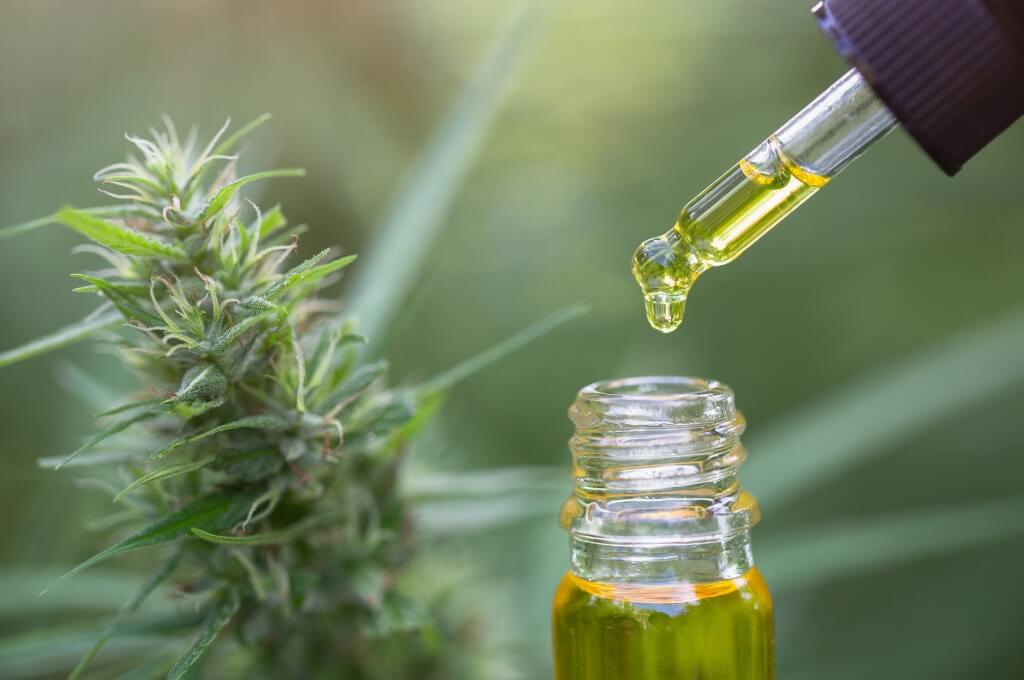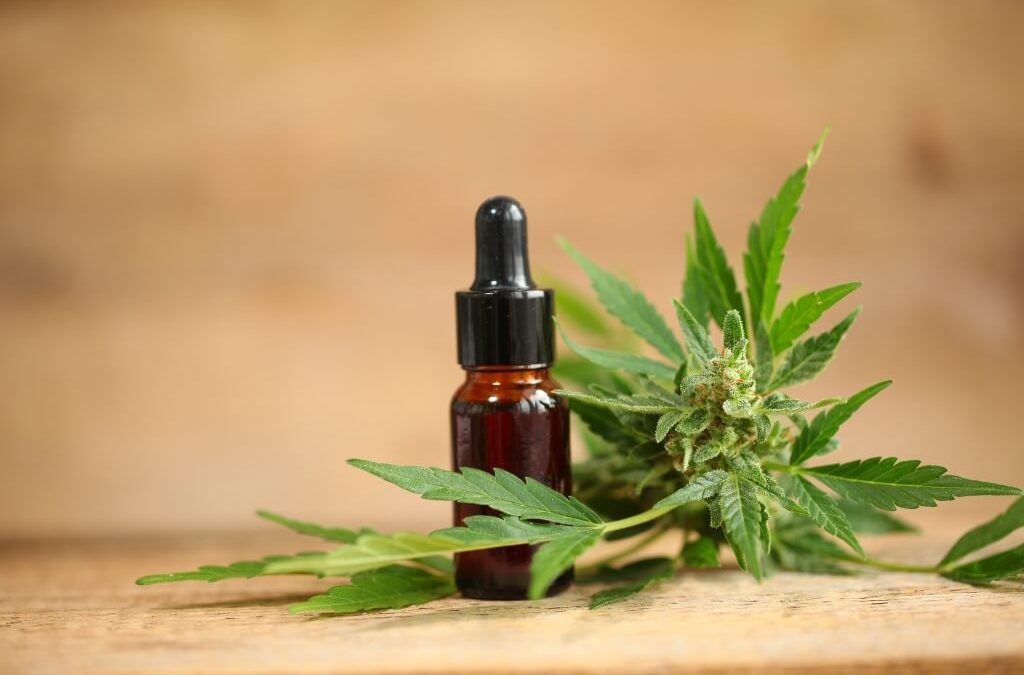Key Takeaways:
- Rick Simpson Oil (RSO) is a unique cannabis extract with high THC content known for its potential therapeutic properties.
- Legal status and availability of RSO vary across the US and internationally, necessitating informed decisions for users.
- While anecdotal evidence suggests various benefits, there’s a pressing need for comprehensive research to substantiate RSO’s therapeutic claims.
- Users should prioritize personal responsibility, starting with small dosages and consulting healthcare professionals before incorporating RSO into their regimen.
Named after Canadian engineer Rick Simpson, Rick Simpson Oil (RSO) has made its mark in alternative medicine circles.
Simpson’s personal health journey led him to develop this highly-concentrated cannabis oil, characterized by its thick, tar-like consistency and significant THC (Tetrahydrocannabinol) concentration.
Advocates praise RSO for its potential therapeutic benefits, from pain relief to anti-cancer properties, while skeptics seek more concrete evidence.
Through a neutral and informative lens, we aim to provide readers with a comprehensive understanding of RSO’s role in the expanding world of cannabis and medical marijuana.

Introduction to Rick Simpson Oil (RSO)
Delving into the world of cannabis extracts, one is bound to encounter the intriguing narrative of Rick Simpson Oil (RSO).
This potent cannabis extract, with its thick, tar-like consistency, has sparked discussions, debates, and a growing interest in the medicinal cannabis community.
The history of RSO is as rich as its composition, intertwined with personal experiences and wider acceptance in medicinal circles.
Who is Rick Simpson?
Rick Simpson isn’t just the name behind the renowned cannabis oil; he is a Canadian engineer who unexpectedly found himself at the crossroads of personal health challenges and alternative remedies.
Encountering limited success with conventional treatments, Simpson turned his attention to the medicinal attributes of the cannabis plant. Driven by experimentation and need, he innovated a unique extraction process, producing potent and effective cannabis oil.
This creation not only provided him personal relief but would also later be christened in his honor, standing as a testament to his journey and the potential benefits of cannabis.
The Emergence of RSO in the Mainstream
RSO’s journey from a personal remedy to a topic of discussion in alternative medicine circles is notable. Its purported benefits, combined with growing anecdotal evidence, bolstered its popularity and spurred interest among researchers, practitioners, and medical marijuana patients alike.
What is Rick Simpson Oil?
Rick Simpson Oil stands as a distinctive cannabis extract, gaining prominence in both anecdotal and medical discussions due to its unique properties and reported therapeutic potential.
Key Characteristics
- High THC content: One of the defining traits of RSO is its substantial THC (Tetrahydrocannabinol) concentration, which is believed to contribute to its therapeutic properties.
- Thick, tar-like consistency: Unlike other cannabis oils, RSO is recognized for its viscous, almost tar-like texture, making it distinct in appearance and feel.
- Made from cannabis: As a concentrated extract, RSO captures the essence of the cannabis plant, embodying its rich compound profile.
Production Process
The creation of RSO involves a meticulous process, ensuring the retention of its potent characteristics while adhering to safety standards.
Materials Used
- Indica strains of marijuana: Rick Simpson particularly recommends using indica cannabis strains for producing RSO, given their reported therapeutic attributes.
- Solvents (like isopropyl alcohol or ethanol): These solvents play a pivotal role in extracting the essential compounds from the cannabis plant material.
Extraction and Purification
- Basic steps of extraction: The process begins with the marijuana plant being thoroughly washed with the solvent, which then dissolves the plant’s trichomes, capturing its active compounds.
- Purification: Post-extraction, the mixture undergoes a purification process, where it’s heated to evaporate the solvent, leaving behind the concentrated cannabis oil free from impurities.
Potential Benefits of RSO
The therapeutic potential of Rick Simpson Oil (RSO) has been a point of intrigue and discussion among professionals, researchers, and users alike.
It is most popular among cancer patients, who claim it helps with chronic pain and other effects of cancer and radiation therapy. This interest stems from both scientific research and anecdotal accounts, each offering insights into RSO’s possible benefits [1].
Medical Research Findings
- Existing studies on THC and its effects: Research has shown that THC, a primary compound in RSO, may offer pain-relieving properties, reduction in nausea, and potential mood-enhancing effects.
- Limitations of the research available: It’s important to note that while some findings are promising, comprehensive clinical trials, specifically on RSO, are limited, warranting further in-depth research.
- Potential anti-cancer properties: Preliminary studies have hinted at THC’s capability to induce apoptosis (cell death) in certain cancer cells (lung cancer and brain cancer cells), though conclusive evidence about RSO’s effectiveness as a cancer treatment and reduction of cancer growth remains under examination.
Anecdotal Evidence and User Testimonials
- Rick Simpson’s claims and experiences: Rick Simpson, the pioneer of RSO, asserts its efficacy based on his personal journey, where he used the oil for various ailments, including skin cancer, achieving positive results.
- Reports from patients and users: Beyond Simpson’s account, numerous individuals have shared their experiences with RSO, recounting benefits ranging from pain management to improved sleep. However, these testimonials, while compelling, are subjective and should be considered alongside scientific evidence.
Safety and Risks Associated with RSO
As with any potent therapeutic product, the use of Rick Simpson Oil (RSO) is accompanied by both its benefits and potential risks as a medical cannabis [2].
Understanding the safety parameters and potential side effects is paramount for users seeking to integrate RSO into their wellness routine.
Potential Side Effects
- Psychotropic effects (due to high THC): Given RSO’s significant THC content, users might experience altered perceptions, euphoria, or cognitive changes, especially when consumed in larger amounts.
- Allergic reactions or skin irritations: As with many products, some individuals might exhibit allergic responses or skin irritations upon topical application or ingestion.
- Possible interactions with other medications: RSO’s active compounds may interact with certain medications, affecting their efficacy or inducing unwanted side effects.
Considerations for Use
- Start with a small dosage: Especially for newcomers, it’s advisable to begin with minimal amounts, gradually adjusting based on individual reactions and desired outcomes.
- Monitor reactions and adjust as necessary: Regularly observing any physical or mental changes can assist users in determining the optimal dosage and frequency of use.
- Consultation with healthcare professionals: Before starting or incorporating RSO, seeking guidance from a medical expert ensures a safe and informed approach to its use.

RSO vs. Other Cannabis Products
The cannabis landscape is dotted with various products, each possessing its own unique attributes and applications. Among these, Rick Simpson Oil (RSO) distinguishes itself, but how does it compare with other mainstream cannabis products?
Differences in Composition
- Comparison of THC and CBD content: While RSO is known for its high THC concentration, many other cannabis products might prioritize CBD (Cannabidiol). The difference in these primary cannabinoids dictates the product’s therapeutic potential and psychotropic effects.
- Differences in extraction methods: RSO boasts a specific extraction method using solvents like isopropyl alcohol or ethanol. In contrast, other cannabis products might employ CO2 extraction or other techniques, resulting in variations in purity, potency, and consistency.
Intended Use and Effectiveness
- Therapeutic claims and evidence: RSO’s anecdotal and research-backed claims often center on pain relief, potential anti-cancer properties, and other therapeutic effects. Meanwhile, other cannabis products might be promoted for relaxation, anxiety relief, or other health benefits.
- Differences in user experience: Owing to its potent THC content, RSO might offer a pronounced psychotropic experience. On the other hand, products with higher CBD content could provide therapeutic benefits without the “high” typically associated with THC.
Current Legal Status and Availability
Navigating the realm of cannabis products, including Rick Simpson Oil (RSO), necessitates a clear understanding of the legal landscape. Both within the US and internationally, the status of RSO varies, influenced by evolving perceptions, research, and policy decisions.
RSO in the US
While numerous states have legalized cannabis for medical and/or recreational use, RSO’s legal status often parallels that of cannabis. Users must familiarize themselves with the regulations in their respective states.
In states where RSO is legal, there may still be regulations governing its production, sale, and possession limits. Adherence to these guidelines ensures compliance and user safety.
International Perspective
The global stance on RSO varies widely. Some nations have embraced its potential, legalizing or decriminalizing it, while others maintain stringent prohibitions.
Regularly updating oneself on international cannabis laws is key for those seeking to use RSO outside the US.
Even in countries where RSO is legal, there might be strict regulations on its import and export. Users looking to travel with or procure RSO from abroad should be well-informed of these considerations to avoid potential legal complications.
Future Prospects
Rick Simpson Oil (RSO), having traversed a journey from personal discovery to broader recognition, continues to spark interest and debate in scientific and user communities.
Its potential benefits, juxtaposed with the need for comprehensive research, position RSO at the forefront of cannabis discussions.
Ongoing Research and Clinical Trials
With the cannabis research landscape rapidly evolving, there’s hope for new findings to illuminate RSO’s therapeutic potential further and solidify its place in medical applications.
Despite promising anecdotes and preliminary studies, a robust body of research specifically on RSO is essential to substantiate claims and understand its full spectrum of effects.
Personal Responsibility and Informed Choices
Before venturing into RSO, individuals are encouraged to delve deep into available research, consult with healthcare professionals, and make informed decisions that prioritize safety and well-being.
Everyone’s body and mind react differently to substances, and RSO is no exception. Monitoring one’s reactions, starting with minimal dosages, and adjusting as necessary can ensure a beneficial and safe experience with RSO.
Conclusion
Rick Simpson Oil (RSO) is a testament to the ever-evolving world of cannabis research and its potential applications. While its therapeutic promises are compelling, they come with a call for more comprehensive research and user discretion.
As we navigate the complex landscape of RSO, a balanced approach—melding scientific scrutiny with personal experience—will illuminate its future role in wellness and medicine.
Sources:
-
- Scott KA, Dalgleish A, Liu WM. The Combination of Cannabidiol and Δ9-Tetrahydrocannabinol Enhances the Anticancer Effects of Radiation in an Orthotopic Murine Glioma Model. Molecular Cancer Therapeutics. 2014;13(12):2955-2967. doi: https://doi.org/10.1158/1535-7163.mct-14-0402
- Cafasso J. Can Rick Simpson Oil Treat Cancer? Healthline. Published June 20, 2023. Accessed August 10, 2023. https://www.healthline.com/health/rick-simpson-oil-cancer#side-effects-and-risks


Recent Comments